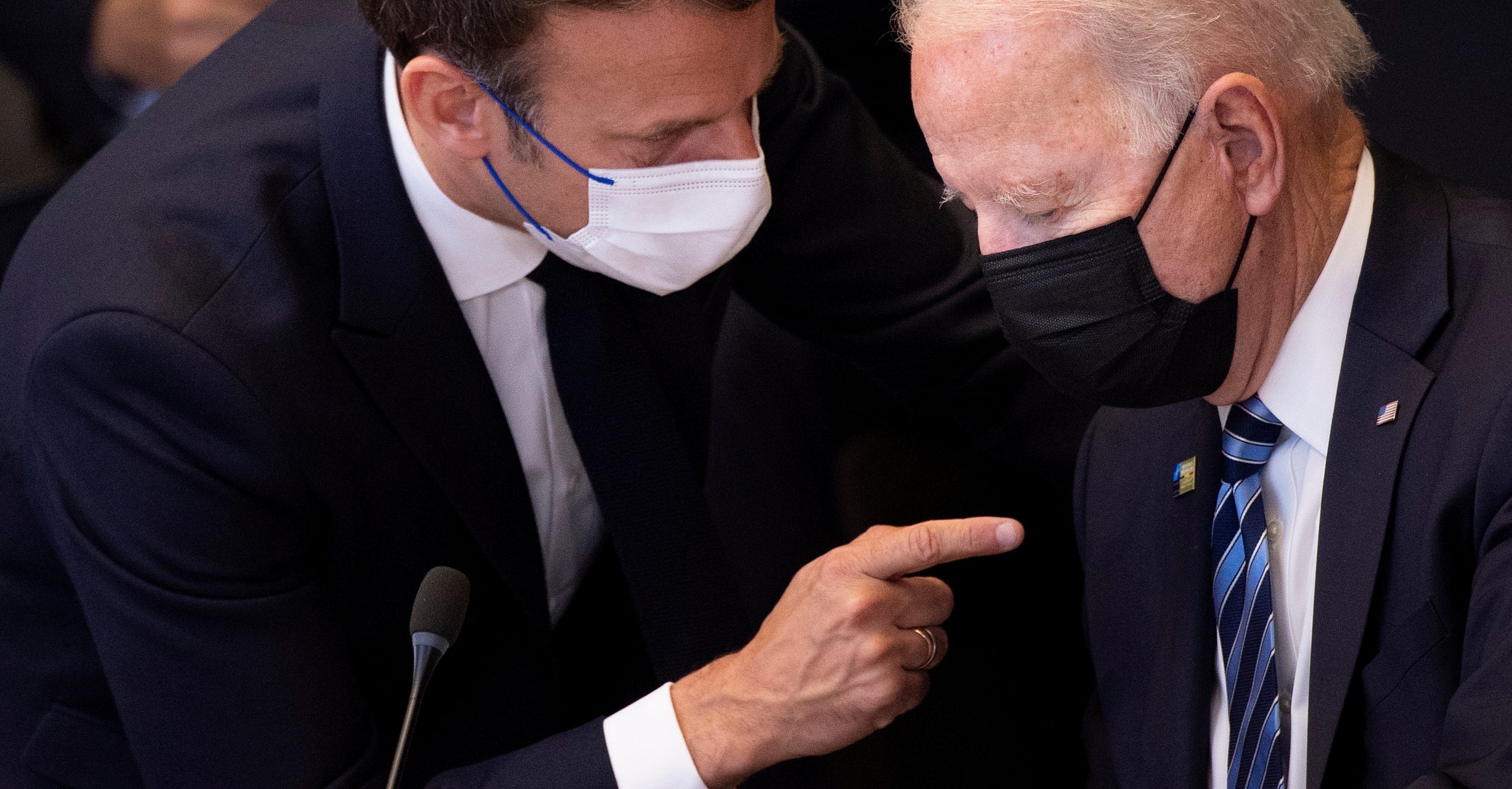Diplomatic Sensitivies Bruised All Around
"[The United States, the United Kingdom and Australia have embarked on a folly] severely damaging regional peace and stability, intensifying an arms race, and damaging international nuclear non-proliferation efforts.""China always believes that any regional mechanism should conform to the trend of peace and development of the times and help enhance mutual trust and cooperation...""It should not target any third party or undermine its interests."Chinese Foreign Ministry spokesman Zhao Lijian, Beijing"Now that we have created AUKUS we expect to accelerate the development of other advanced defence systems including in cyber, artificial intelligence, quantum computing and undersea capabilities."British Prime Minister Boris Johnson"This brutal, unilateral and unpredictable decision reminds me a lot of what Mr. Trump used to do. I am angry and bitter.""This isn't done between allies."French Foreign Minister Jean-Yves Le Drian"We all recognize the imperative of ensuring peace and stability in the Indo-Pacific over the long term.""We need to be able to address both the current strategic environment in the region, and how it may evolve because the future of each of our nations and indeed the world depends on a free and open Indo-Pacific enduring and flourishing in the decades ahead."U.S. President Joe Biden

Of
the Five Eyes Intelligence group left out of this arrangement between
the three ranking members, New Zealand and Canada have remained mute on
the issue. They were no less than France taken by surprise at a move
that left them stranded. France's outrage is of an entirely different
dimension; it stands, through this arrangement, to lose a lucrative
contract signed with Australia to produce a nuclear submarine program
for Australia.
It
is beyond laughable as the very height of sophistry for Beijing to
declare itself offended at the impolite behaviour of the three allies,
considering itself -- and rightly so, and very well earned -- the
ultimate target of the move. It immediately inveighed against the
dangerously unscrupulous pact that produced AUKUS to provide Australia
with technology and capability for the deployment of nuclear-powered
submarines, when it has been itself building a powerful, large and
advanced naval fleet to rival that of the sole world power with the
largest military on the planet -- the U.S.
Facts
do get in the way of Beijing's shocked condemnation, since it is itself
responsible for the alarm and foreboding felt by its neighbours as a
result of the ruling Chinese Communist Party's belligerent aggression
toward contested territory claimed by its neighbours but dominated by
China. All the metrics of advanced technology aligned with military
hardware have been used by China to threaten its neighbours and by
extension its Western adversaries, alarmed at Beijing's new militarism.
For
France, the AUKUS arrangement is a betrayal brutal and unpredictable.
Insofar as it has lost a valued contract, and a lot of face in the
process. Its allies drove an armed vehicle up its private alleyway and
detonated it to France's consternation; this is not the least bit
collegial. Traditionally on the edge of suspicion and challenge, France
and Britain are both allies and competitor-adversaries. The pact,
claimed Prime Minister Johnson, would reduce the costs of Britain's next
generation of nuclear submarines.
Pity
that French shipbuilder Naval Group has been left out in the cold,
mourning its loss of a $60 billion agreement to build a new submarine
fleet for Australia, replacing its elderly submarine fleet. France now
upbraids the Biden administration for 'stabbing it in the back'. Allies
simply do not behave like this. Except that ... they do on occasion.
Canada metaphorically shrugs and diplomatically screens its level of
consternation. New Zealand has declared that Australia's nuclear-powered
submarines are not to be permitted entry to its territorial waters.
 | |
| Australia announced a nuclear-powered submarine deal with the US and UK on Wednesday, abandoning an agreement previously brokered with France. Credit: Shutterstock | |
"At the level of process, the mishandling of consultations with the French over the sub deal marks the third occasion in the last eight months in which the Biden administration appears to have committed an unforced error vis-à-vis alliance relations. The other two are the apparent lack of operational coordination with allies over the withdrawal from Afghanistan and the anger in Central and Eastern Europe over Washington’s willingness to accommodate Germany on the Nord Stream 2 gas pipeline. For an administration that came into office preaching the importance of allies, these three instances paint a disconcerting picture of a team that either doesn’t prioritize relations with some close allies like France or cannot run an effective policy-formulation process that balances competing interests. Certainly, the lack of confirmed appointees at the departments of State and Defense matters to some degree here, yet these unforced errors occurred despite the fact that the president’s team is in place at the National Security Council. In order to convey the notion that the president won’t tolerate any more missteps with America’s closest allies—and to genuinely fix whatever isn’t working within the National Security Council (NSC)—the White House should reallocate responsibilities, juggle titles, and/or create a special assistant position in the NSC for coordination of allied efforts vis-à-vis Moscow and Beijing."Dr. John R. Deni is a research professor at the US Army War College’s Strategic Studies Institute and a nonresident senior fellow at the Atlantic Council’s Transatlantic Security Initiative in the Scowcroft Center for Strategy and Security.
Labels: AUKUS, Australia, China, Five Eyes, France, United Kingdom, United States
0 Comments:
Post a Comment
<< Home